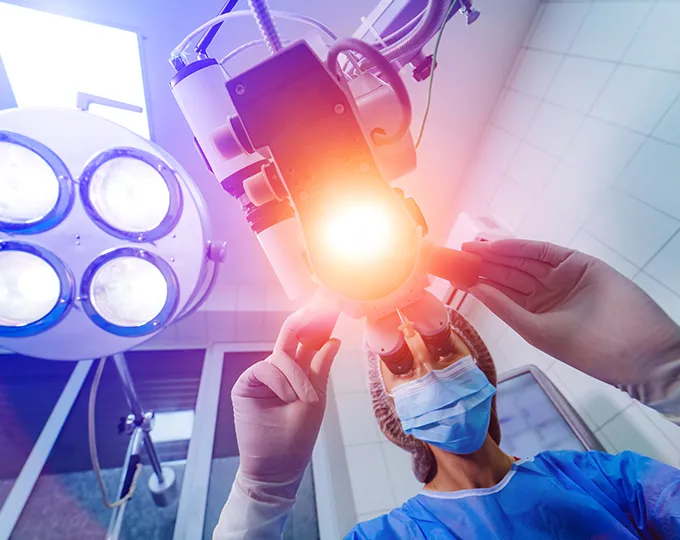Pre-Op & Post-Op LASIK Care in the Metro East
Are you considering LASIK surgery? Are you ready to shed those eyeglasses and kick those contacts to the curb? If so, it’s important that you choose a qualified professional to handle pre-op and post-op LASIK Care to ensure your surgery heals quickly and provides the maximum benefit. At Lebanon Optometric Center and Breese Family Vision Center, we know how to best care for you and help you recover from LASIK and cataract surgery. As a family-owned practice, know that we understand the importance of these procedures to local families, providing clear vision that gives people a way to better enjoy their family, friends, and life in general. Read more below about pre-op and post-op care provided by our dedicated team!

Pre-Operative LASIK Care
LASIK surgery is major eye surgery. While these procedures are often considered routine, they still require careful preparation and follow-up to ensure the best possible outcome. That’s why a thorough LASIK exam is an essential first step—it allows your eye doctor to evaluate your overall eye health and determine if you’re a good candidate for the procedure. With this in mind, it’s important to adhere to the proper care and preparation prior to surgery to help prevent complications and ensure everything goes as planned. Pre-op LASIK care includes guidance on discontinuing contact lens use, using prescribed eye drops, and following any additional instructions your doctor provides. Read on for more details about pre-operative care.
- Do not sleep in contact lenses while awaiting surgery
- Leave contact lenses out of your eye for the time specified by your optometrist
- Provide informed consent to the facility doing the surgery
- Use eye drops as directed by the physician performing the surgery
- Use eye drops and artificial tears from brands specified by physician

Post-Operative LASIK Care
The success of your surgery depends on the post-operative care just as much as the pre-operative care. After surgery, remember that your eyes have been through a traumatic experience, and they need time to rejuvenate. While the turnaround times for these surgeries are usually quite abbreviated, you must strictly adhere to any guidelines and instructions provided by the physician. Not doing so puts the health of your eyes in danger. Contact us today if you are experiencing any problems. Post-operative LASIK care may include the following:
- Napping or resting
- Steroid drops
- Antibiotic drops
- Artificial tears
- Avoiding television and computer use
- Wear sunglasses outdoors for 3 weeks, rain or shine.
- Eye shields for sleeping
- Do not rub or touch eyes for 3 weeks
- Do not shower after surgery
- Prohibited use of cosmetics
- Avoid excessive exercise
- Wait at least 5 days before flying after surgery.
Please follow all guidelines and instructions provided by our physician.
***Remember: You won’t be able to drive after your surgery, meaning you’ll need to find someone that can drive you to and from the procedure and take care of you after arriving home.

What to Expect after LASIK
After LASIK eye surgery, it’s important to understand what to expect during the healing process. In the first few hours, your eyes may burn, sting, or water more than usual, and it may feel like something is irritating your eye—this discomfort typically improves within 12 hours. Over the following months, you may notice some vision fluctuations as your eyes continue to stabilize. It’s also common to experience temporary changes in night vision, such as increased glare, starbursts, or reduced detail in low-light settings. These effects usually improve with time as your eyes heal.
Post-Operative Cataract Surgery Care
Cataract surgery is vital in helping the elderly retain and preserve their vision. However, this is also a major eye surgery, and patients must adhere to the right procedures to ensure their vision recovers successfully. Follow all procedures and take all medicines and eye drops prescribed by the operating physician to ensure a successful procedure. Post-op cataract care might include the following:
- Artificial tears
- Steroid drops
- Antibiotic eye drops
- Anti-inflammatory eye drops
- Pain medications
- Less physical activity
- Reduction in TV and computer use
- No eye makeup
- No swimming
- No eye Rubbing
- Wear sunglasses outdoors in any weather.
